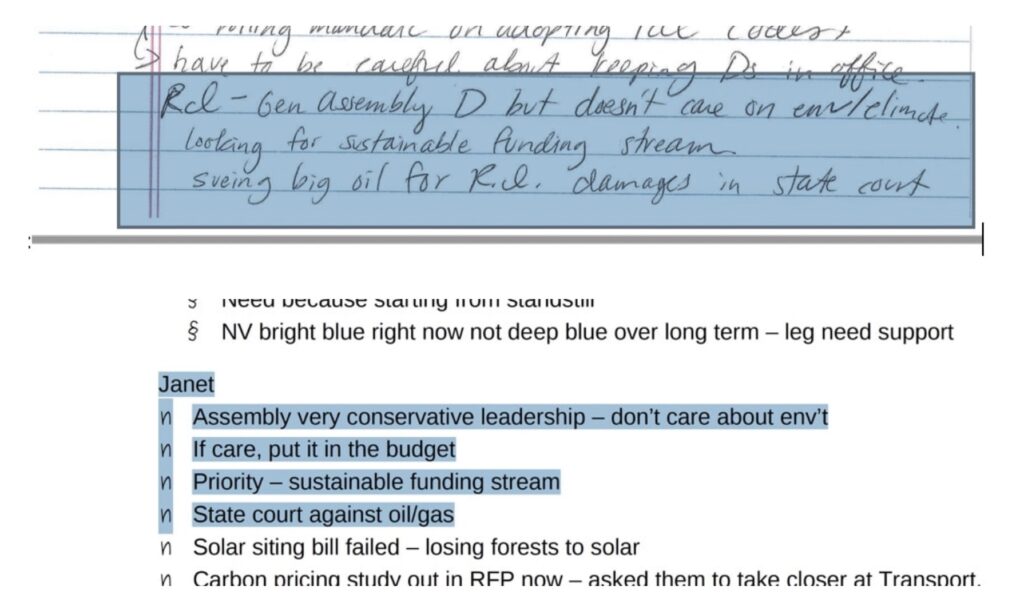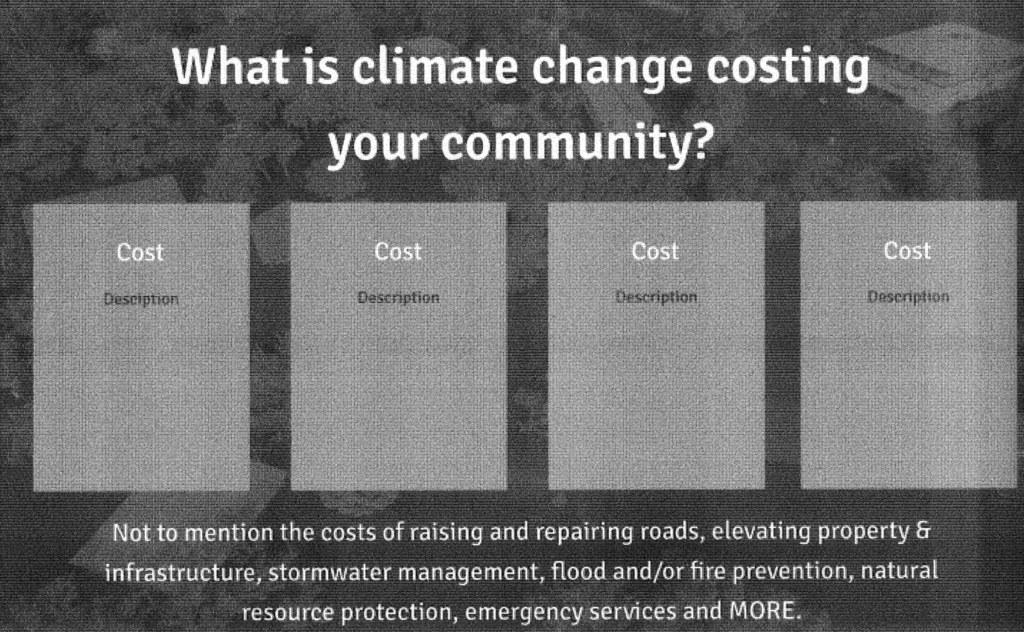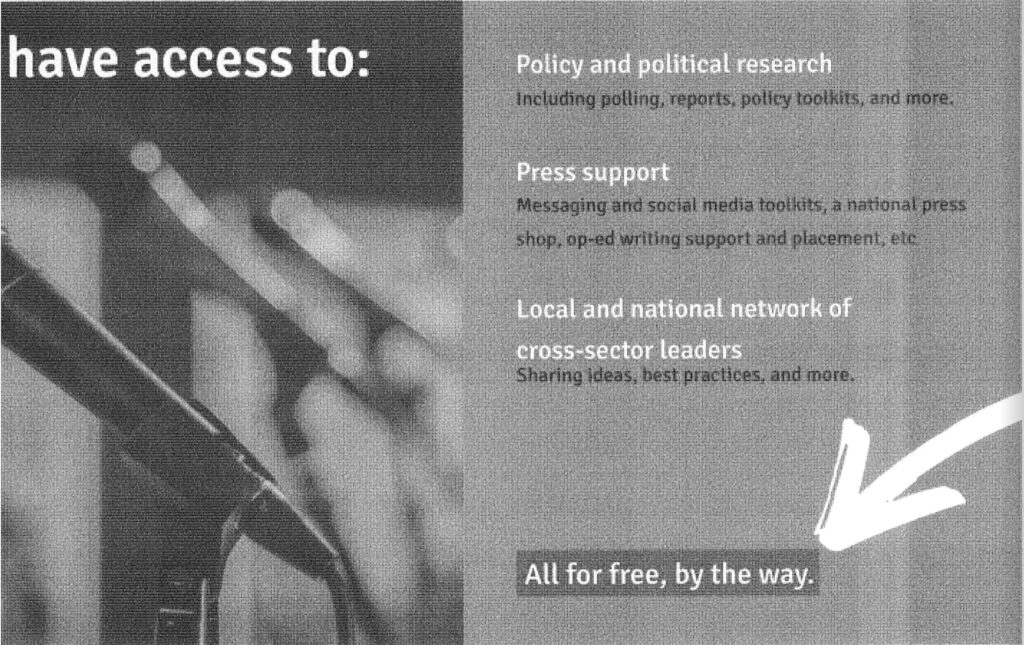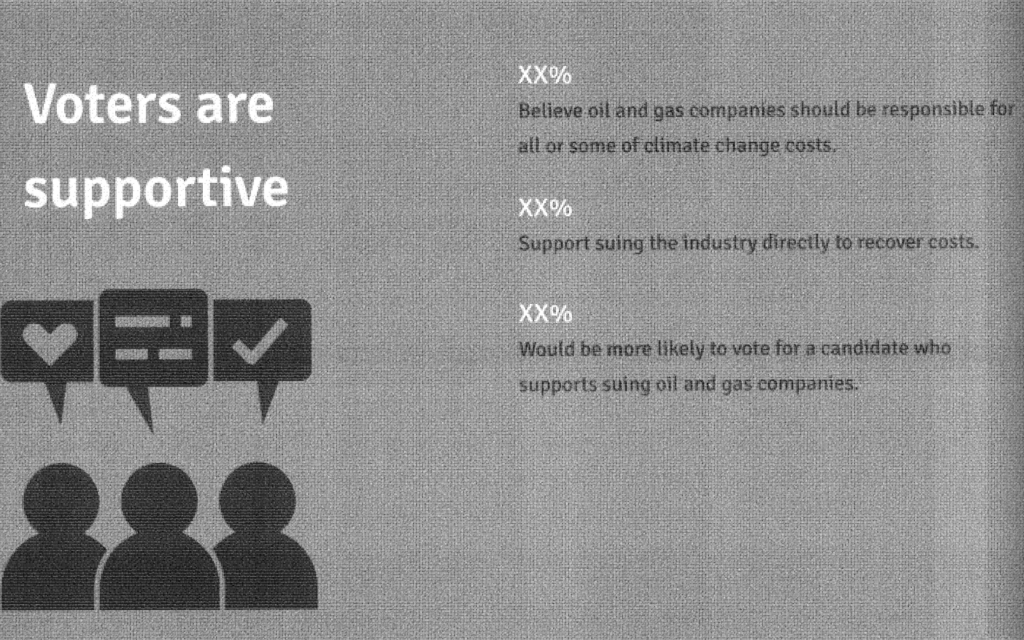Courtesy of the indispensable transparency-in-government group Energy Policy Advocates, the New Jersey Borough of Bradley Beach has released some relevant public records under the state’s OPRA. These include a recruiting and advocacy toolkit for aspiring governmental “climate” plaintiffs provided by the Center for Climate Integrity (CCI) — boasting of its “partners in law, science and advocacy”.
As GAO has previously noted, these suits seek a “sustainable funding stream” from energy companies (so, consumers, shareholders and workers) for governors. As Energy Policy Advocates also recently informed the United States Supreme Court.
A reminder, from two sets of notes at a Rockefeller-hosted meeting (transcribing remarks by Janet Coit, then a cabinet-level official from “RI” (Rhode Island)):

These new CCI materials further illuminate the services it’s providing to politicians (which were already revealed to be possibly a bit too expansive).
CLW has previously noted CCI’s influence in the New Jersey on this front. But it seems that, like Montgomery Burns, they’d trade it all for a little more. The toolkit shows how pols interested in grasping their own sustainable funding stream (e.g., “What would you do with $41 billion?”) can fill in the blanks for bespoke fliers, presentations, what have you!


But wait, there’s more! By partnering with CCI pols can gain access to scripted talking points, resolutions for the politician to introduce, draft emails to send to constituents, etc. Why they can even learn what phrases have poll-tested well and get other polling materials (but, shhh).


No national, donor-provided consultancy’s materials would be complete without serial pleas to invoke “protecting local democracy”, and CCI’s do not disappoint.
Like so much about the plainly coordinated, centrally financed campaign, this tranche (complete with, yes, a chart of the nationally coordinated suits) nicely mocks the new notion sweeping pleadings across the country that these are all unrelated, distinct and purely local matters, your honor!
On a more serious and educational note, the materials do provide a nice primer on what some of the more attentive state legislatures are doing and might do, and express concern about materials the U.S. Chamber of Commerce has published.
Most interesting to CLW, however, is that despite numerous other responses by other NJ municipalities, no one else has confessed to having been provided these docs. Oversight, private email accounts not or insufficiently searched, or other factors might at some point help explain this.
